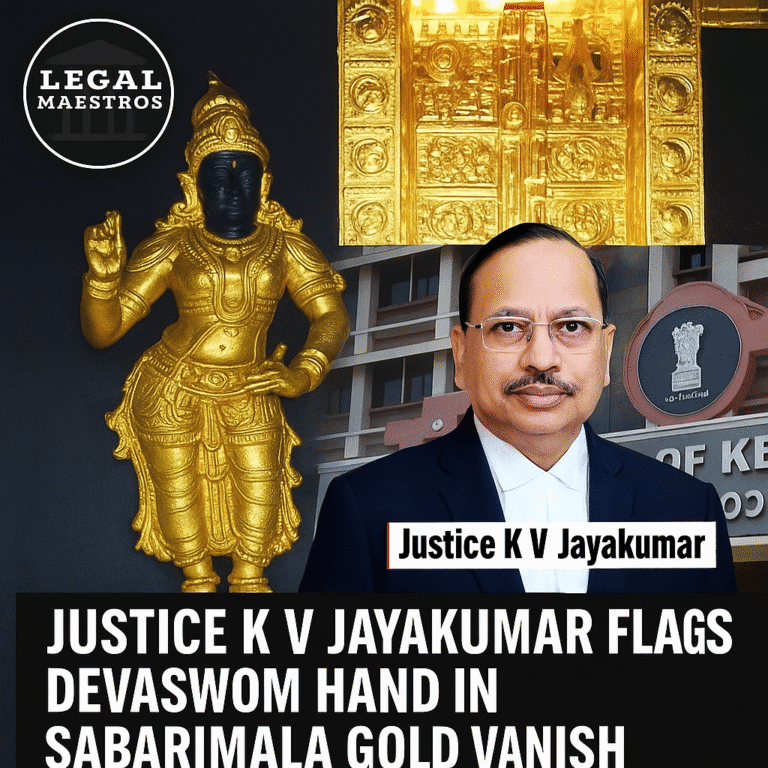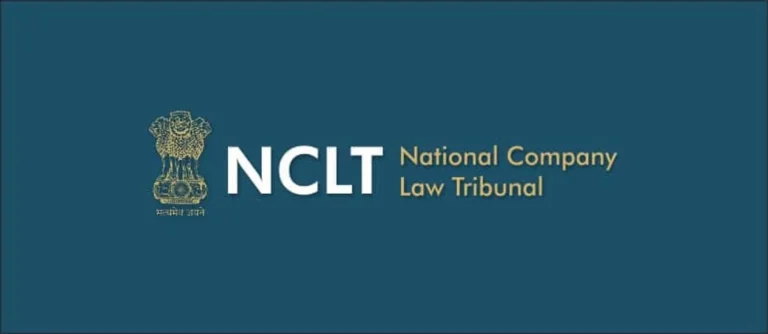
Rahul Gandhi’s Maharashtra Electoral Rolls Allegations: Article 324 and Electoral Integrity
In a series of remarks that he made not too long ago, Rahul Gandhi asserted that there was widespread manipulation of election records in the state of Maharashtra. In line with Article 324 of the Constitution of India, these remarks have reignited a significant debate on the constitutional obligation that the Election Commission of India has to ensure the integrity of the election process.
Gandhi made this claim during a campaign event that took place at the beginning of June 2025. He stated that the voter lists in some constituencies, notably those in Mumbai and the metropolitan districts that surrounding it, had been “massively tampered with.”
Additionally, he stated that the outcomes of the elections were being influenced by the use of phantom voters and deletions that were done on purpose.
For any queries or to publish an article or post or advertisement on our platform, do call at +91 6377460764 or email us at contact@legalmaestros.com.
A general election that is being vigorously contested and in which charges of bias, misinformation, and administrative blunders have grown increasingly widespread across party lines, these assertions were made in the context of the election. The election is now taking place.
The role of “superintendence, direction, and control of elections” is one that is entrusted to the Election Commission in accordance with Article 324 of the Constitution of India. Both Parliament and the legislatures of the states are responsible for this obligation.
For More Updates & Regular Notes Join Our Whats App Group (https://chat.whatsapp.com/DkucckgAEJbCtXwXr2yIt0) and Telegram Group ( https://t.me/legalmaestroeducators )
For any queries or to publish an article or post or advertisement on our platform, do call at +91 6377460764 or email us at contact@legalmaestros.com.
In addition to transforming the Election Commission into the central organization responsible for ensuring that elections are carried out in a way that is both free and fair, this section grants the Election Commission the authority to oversee all aspects of the electoral process, including the generation of electoral registers.
Article 324 has been interpreted by the courts over the course of many years as a reservoir of residual powers. This interpretation gives the Commission the authority to take any and all actions that are necessary to guarantee that elections are carried out in an honest and transparent way.
Noting that this authority is not absolute and that it must operate within the limitations of the election regulations that have been approved by Parliament, most notably the Representation of the People Act, which was passed in 1950 and 1951, is a crucial point to keep in mind.
For any queries or to publish an article or post or advertisement on our platform, do call at +91 6377460764 or email us at contact@legalmaestros.com.
Electoral records are prepared and revised in accordance with the provisions of Sections 15 to 25 of the Representation of the People Act, which was enacted in the year 1950. The technique has a number of components, including the solicitation of claims and objections, the execution of house-to-house verifications, and the utilization of data from official records such as census or Aadhaar-linked databases.
Additionally, in order to streamline the process of voter registration and to guarantee that it is conducted in an open and honest manner, the Election Commission has deployed digital tools such as the Voter Helpline app and the NVSP portal.
Due to the fact that the Booth Level Officer (BLO) level requires physical engagement, the method, on the other hand, continues to be subject to manipulation on a localized level. This is particularly true in areas that have a high residential population density or a high pace of migration.
For any queries or to publish an article or post or advertisement on our platform, do call at +91 6377460764 or email us at contact@legalmaestros.com.
The assertions that Gandhi made shed light on the problem of duplicate entries and selective deletions, both of which have been recurring problems in the administration of elections in India. Other problems include selective deletions.
In urban districts in Maharashtra, where people are very mobile and slum clusters typically lack legal paperwork, voters frequently complain about being excluded from the lists despite possessing legitimate voter ID cards. Urban constituencies are characterized by a high degree of mobility.
The frequency of this is rather typical. On the other hand, opposition parties have accused governing dispensations of artificially increasing rolls by either retaining the names of those who have passed away or by adding new entries. Opposition parties have leveled this criticism against the government.
For any queries or to publish an article or post or advertisement on our platform, do call at +91 6377460764 or email us at contact@legalmaestros.com.
Although the Election Commission participates in substantial revision drives on a regular basis, these efforts frequently fail to fully capture real-time population variations or erase data discrepancies that have been present for lengthy periods of time. This is despite the fact that the Election Commission also engages in significant revision campaigns.
In previous instances, the Supreme Court has placed a strong emphasis on the need of electoral registers in order to guarantee that elections are carried out in a way that is fair. During rulings such as “People’s Union for Civil Liberties v. Union of India,” the Supreme Court of India stressed the need of ensuring that the process of voter registration is conducted in an open and accountable manner.
Furthermore, the highest court in the land has ruled that Article 324 not only grants the Election Commission the authority to take immediate action in situations where election fairness is in jeopardy, but it also mandates that it do so, even if there is no specific statutory underpinning for such action.
For any queries or to publish an article or post or advertisement on our platform, do call at +91 6377460764 or email us at contact@legalmaestros.com.
This is the case even if there is no specific statutory underpinning for conducting such action. This idea was repeated by the Supreme Court when it validated the Commission’s ability to disqualify candidates or countermand polls in circumstances when it is proved that there has been widespread wrongdoing. In other words, where there is evidence that there has been widespread misconduct.
The Election Commission has, up to this point, maintained that all additions, deletions, and adjustments have been done out in compliance with the specified legal framework. This is in response to the claims that Gandhi has made.
In addition, the Commission has indicated that any voter who has a complaint can either visit the proper electoral officer or use online grievance redressal procedures so that they can get their concerns addressed.
For any queries or to publish an article or post or advertisement on our platform, do call at +91 6377460764 or email us at contact@legalmaestros.com.
It also issued a clarification that false allegations that are designed to undermine public faith in the electoral process will be dealt with in a rigorous way. This clarification was given in addition to the fact that the integrity of the voter list is protected by procedures that entail multiple layers of verification.
On the other side, those who are opposed to the official remedies are of the opinion that they do not address the structural issues that allow for the manipulation of voter lists. The lack of real-time connectivity between numerous government databases, the absence of statutory underpinning for the integration of Aadhaar and voter ID in the wake of the Supreme Court’s privacy verdict, and the opaque operation of some Border Law Officers (BLOs) continue to create opportunities for malpractice against the government.
Organizations that are part of civil society have urged for the implementation of a public oversight mechanism that would review the deletion of voters or the addition of voters in large numbers. In addition to this, these organizations have requested that voter registrations in disadvantaged neighborhoods be subjected to independent audits.
For any queries or to publish an article or post or advertisement on our platform, do call at +91 6377460764 or email us at contact@legalmaestros.com.
At the same time, the incident brings to light a broader general concern over the politicization of electoral procedures and the loss of confidence in constitutional institutions.
The relevance of perception in connection to the legitimacy of elections is brought to light by allegations such as those made by Rahul Gandhi. This is true regardless of whether or not the allegations are eventually found to be genuine.
Considering that India is such a huge and diverse democracy, it is absolutely necessary for the people to have faith in the impartiality of the Election Commission in order for the democracy to be able to work properly. In the case that this trust is undermined, the outcomes of elections run the risk of losing public support, regardless of whether or not they are correct in terms of the method that was followed.
For any queries or to publish an article or post or advertisement on our platform, do call at +91 6377460764 or email us at contact@legalmaestros.com.
Consequently, the assertions that have been made concerning the electoral records of Maharashtra should not be seen as purely political exaggeration; rather, they should be regarded as a demand to critically review the operational strength of India’s election infrastructure.
This is because the accusations have been shared. Therefore, in order to fulfill this mandate in practice, it is necessary to maintain vigilant vigilance, advance technical innovation, maintain institutional openness, and most importantly, maintain public trust.
Article 324 entrusts the Election Commission with the responsibility of ensuring that elections are conducted in a manner that is honest and trustworthy. The occurrence serves as a timely reminder of the ongoing necessity to alter election procedures in order to safeguard the well-being of India’s democratic system. nonetheless of whether or whether investigations into Gandhi’s allegations unearth particular examples of fraud, this is the case nonetheless.
For any queries or to publish an article or post or advertisement on our platform, do call at +91 6377460764 or email us at contact@legalmaestros.com.




![Research Assistantship @ Sahibnoor Singh Sindhu, [Remote; Stipend of Rs. 7.5k; Dec 2025 & Jan 2026]: Apply by Nov 14, 2025!](https://legalmaestros.com/wp-content/uploads/2025/11/Gemini_Generated_Image_s0k4u6s0k4u6s0k4-768x707.png)
![Karanjawala & Co Hiring Freshers for Legal Counsel [Immediate Joining; Full Time Position in Delhi]: Apply Now!](https://legalmaestros.com/wp-content/uploads/2025/11/Gemini_Generated_Image_52f8mg52f8mg52f8-768x711.png)
![Part-Time Legal Associate / Legal Intern @ Juris at Work [Remote]: Apply Now!](https://legalmaestros.com/wp-content/uploads/2025/11/ChatGPT-Image-Nov-12-2025-08_08_41-PM-768x768.png)
![JOB POST: Legal Content Manager at Lawctopus [3-7 Years PQE; Salary Upto Rs. 70k; Remote]: Rolling Applications!](https://legalmaestros.com/wp-content/uploads/2025/11/ChatGPT-Image-Nov-12-2025-08_01_56-PM-768x768.png)